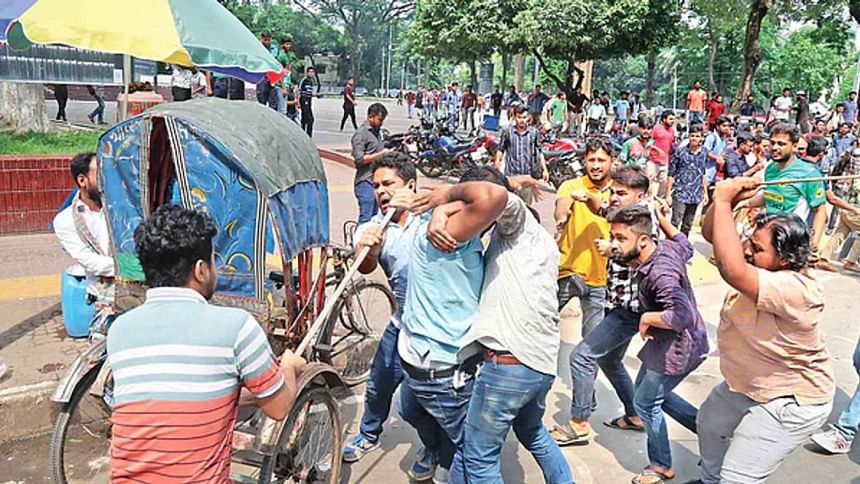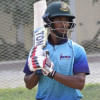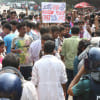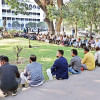Prices of machetes, bamboo and iron rods to go up?

It may seem like an odd assortment of items to be afflicted by the inflationary fever currently in circulation, but following the basic rules of economics—when demand goes up, with existing supply, prices will go up in a free market—it is not surprising. Such deduction comes from the recent clashes between Bangladesh Chhatra League (BCL) and Jatiyatabadi Chhatra Dal (JCD)—yes, they still exist—on the Dhaka University campus, in Khulna, Patuakhali, Manikganj, outside the High Court, and so on, which seems like a prelude to what we may see in the near future as the election draws closer. In which case, more "soldiers" will be needed on the ground, and therefore more "equipment" will be needed to fight the battles of supremacy.
After all, why do political parties, especially when they are ruling, have their student wings in public universities and colleges, if not for the undeniable muscle power required to nip any kind of dissent in the bud? They will, for instance, be required to discipline those annoying students who take to the streets and check licences, because they are tired of seeing their friends get murdered by maniacal bus drivers. They will prevent unnecessary nuisance created by regular students when they demonstrate against violence on campus (allegedly by members of those student wings) or harassment of female students. Most importantly, they will make sure their counterparts from the opposition party are bludgeoned into total retreat if they try to bring out rallies or hang around voting centres. In exchange for such undeniable efficiency and control, what's a little domination of the dormitories, shares in tenders for constructing buildings on the campus, involvement in all kinds of recruitment, and a little mischievous behaviour now and then?
Thus, keeping with their JD (job description), attacking the recent procession of JCD in the Doel Chattar area inside the DU campus with traditional weapons was a perfectly natural response.
Later, members of JCD were slapped with various cases… wait, what? Yes, JCD; BCL, the ones using the machetes and rods and many sporting helmets (as verified by photographs published in various newspapers), were not liable for legal action to be taken against them, but JCD, who were attacked first, were. The charges against JCD included attacking BCL members, obstructing government work, attacking a university employee, and disorderly conduct. It is a little baffling why the JCD, which hardly has any presence in the university, would jeopardise their own programme by "trying to kill" BCL members (as stated in one of the cases), who have total supremacy on the campus. Maybe the JCD is a delusional lot, maybe they have a death wish…
From these facts, we can deduce that in the days to follow, there will be many such "scuffles" between the two "student" wings that will entail the age-old way of resolution—beating the living daylights out of their rivals, with the ruling party cadres obviously winning. Hence, it will hardly be any surprise if the prices of such traditional weapons shoot up. Will the parent party leaders provide some sort of subsidy for their henchmen, who provide the essential human resources during elections? We will never know.
But it is not just the machete maker, the bamboo seller or helmet salesperson who will benefit from the increase in momentum of (violent) politics. Let's not forget that the market for small firearms, like pistols or revolvers, which may also be booming in the months preceding the general election. Just recall those days before the last election, when it would be insulting for a student leader not to brandish a pistol or two to let people know who's the boss.
The burning question is: Will such an inevitable inflationary pressure on weapons in general be reflected in the election-oriented budget of 2022-23? We are not sure. Firstly, we don't know how or if firearms, the ones bought through legal channels, are taxed or whether they fall under the "essential items" category—at least when the recipients are the bouncers of the political party required to intimidate and decimate the opposition. In any case, there is little cause for worry for the hardcore political thugs who can easily acquire a 6mm or 7.2mm or 9mm pistol from the regular stash smoothly entering through the borders. Gun-loving cadres, moreover, can rest assured of the availability of locally assembled guns manufactured in scores of "informal" factories all over the country.
Which brings us back to the prices of bamboo, iron rods, machetes and helmets (all of which have alternative uses—as construction material, to cut meat, and for motorbike riding, respectively). Given the way the BCL is moving—boldly, ferociously and ready to embrace the collateral damage of success in the form of injury or death of members of rival parties, journalists and a few innocent nobodies—price hikes of these multi-use products, along with a spike in the citizens' anxiety levels, could be inevitable.
Aasha Mehreen Amin is joint editor at The Daily Star.

 For all latest news, follow The Daily Star's Google News channel.
For all latest news, follow The Daily Star's Google News channel. 








Comments